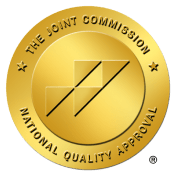Music Group

In traditional talk therapy, some individuals may find it difficult to express themselves. Music interventions provide another avenue for communication that can be helpful in assisting the individual to express their emotions, thoughts, and beliefs.
Music interventions are used as a therapeutic tool to accomplish a client’s individualized goals in any type of therapy, including addiction treatment. Such interventions may include listening to music, making music, or moving to music. These practices all address the physical, cognitive, emotional, and social needs of clients.
Research shows that musical interventions are effective in treating trauma, improving physical rehabilitation, increasing motivation for treatment involvement, and providing emotional support. In addition, music interventions can be used to treat individuals of all ages and from all backgrounds, regardless of their musical abilities.
Although music interventions may be more beneficial for some individuals than for others, the greatest benefits from this type of therapy come from effortful engagement with music.
Benefits of Music Group

- Reduces stress
- Improves self-esteem/concept of self
- Improves verbal communication
- Improves coping skills
- Provides a collective, social experience

How Music Group Is Used in Addiction Treatment
At Nova, music is regularly used as a therapeutic intervention throughout drug and alcohol rehab. Many clients suffering from addiction are dealing with trauma, mood disorders, anxiety, and stress, and we have found that our music group plays a vital role in helping them address self-defeating thoughts, emotions, and behaviors.
In one of our music group exercises, clients listen to music, follow along with the words, and underline the words and phrases that speak to them. The therapist then leads the group in a discussion about those lyrics or words that carried special meaning for them and how that relates to their feelings and memories.
Many activities facilitated in music group involve all different genres of music and are designed to help clients understand how music can evoke feelings and memories. These emotions and memories may be positive or negative, but they all impact our behaviors and substance use habits. Music also allows us to access memories, thoughts, and feelings that we may not otherwise be able to or be willing to access, opening up doors for the sharing and exploring of deeply-buried emotions.
Conversely, music can also cause us to crave particular substances or reminisce about old times using drugs on our own or with friends. For this reason, it’s important that clients take the time to pause, talk about how they feel, and allow time and space to process these issues.

Clients in drug and alcohol rehab will participate in a number of creative art projects to reinforce skills like problem-solving and asking for help, while also creating opportunities to explore stress reduction techniques and coping mechanisms. Some of these activities includes
- Origami
- Collaging
- Mandalas
- Art journaling
- Scribble drawings
- Mindful doodling
The discussions that follow each directive will vary based on the project, but often times it involves an open discussion of the process, detailing the struggles each client faces and how that relates to the struggles they face with anger or emotional regulation, stress management, or their substance abuse.
In some instances, clients will also practice reflective distancing, which requires that they create a piece of art and then write about it for five minutes before presenting it to the group. This teaches the client how to reflect on the image, become conscious of any unconscious processes, and learn how to process the image from a whole perspective. Reflective distancing is a tool that art therapists use to encourage clients to become more aware of themselves and seek solutions for moving forward if they are struggling with a particular emotion or concept.
We Accept Many Insurances.
Schedule a call with us
Nova Recovery Center is dedicated to helping you or your loved one get help. Please call or fill out this form for a confidential consultation. One of our understanding, dedicated advisors will contact you about your options. Begin healing today.
